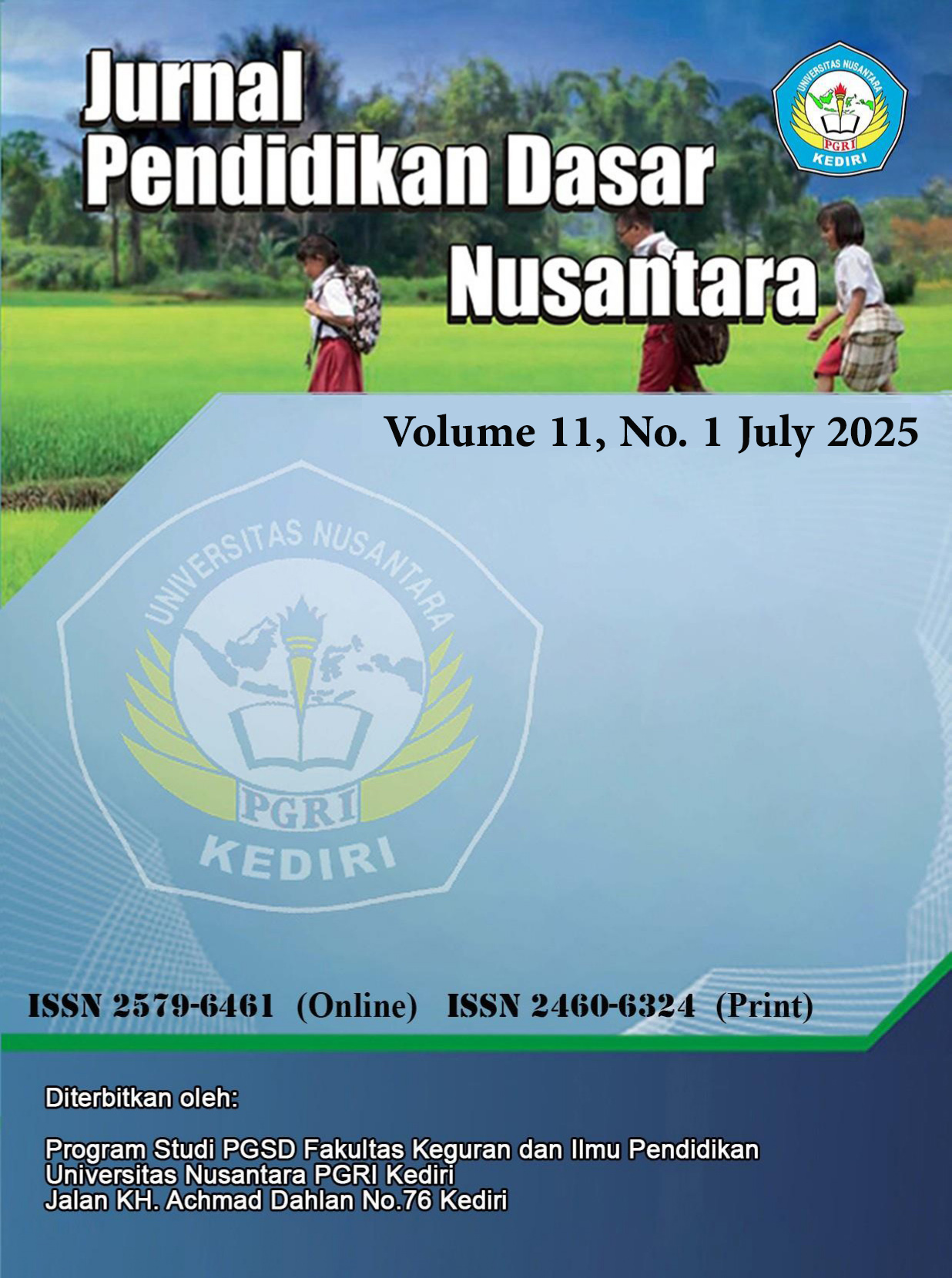Effectiveness of Wordwall Education Games (Gaull) to Improve Reading and Writing Skills of 1st Grade Elementary School Students
DOI:
https://doi.org/10.29407/jpdn.v11i1.26133Keywords:
Reading, Writing, Wordwall, Grade 1 StudentsAbstract
This study aims to test the effectiveness of the wordwall education game on improving the reading and writing skills of first-grade elementary school students. This study applies a quasi-experimental method through the "Nonequivalent Control Group Design" design. In its implementation, this study included two groups of subjects, namely the control group and the experimental group. The control group was given learning through word cards, while the experimental group was given through the wordwall education game media. Both groups were then given an initial reading and writing ability test, the results of which were analyzed using IBM SPSS software. The results of the analysis showed a significant value of 0.000 in the reading aspect and 0.006 in the writing aspect, which means that Ho was rejected and H1 was accepted, through the "Independent Sample T-test", meaning that a significant difference was obtained in reading and writing abilities between the compared groups. These findings show that the application of the wordwall education game media is effective in improving the initial reading and writing skills of first-grade elementary school students.
Downloads
References
Bachry, H., Yuwono, J., & Utami, Y. T. (n.d.). Penggunaan Media Wordwall Untuk Meningkatkan Kemampuan Menulis Tegak Bersambung. Jurnal UNIK Pendidikan Luar Biasa, 3(1), 1–7.
Herta, N., Nupus, B. C., Sanggarwati, R., & Setiawan, T. Y. (2023). Pemanfaatan Aplikasi Game Wordwall dalam Pembelajaran untuk Menumbuhkan Minat Belajar Siswa Sekolah Dasar. Jurnal Seminat Nasional Paedagoria, 3, 527–532.
Imanulhaq, R., & Pratowo, A. (2022). Edugame Wordwall : Inovasi Pembelajaran Matematika di Madrasah Ibtidaiyah. Jurnal Pedagogos : Jurnal Pendidikan STKIP Bima, 4(1), 33–41.
Janna, N. M., & Herianto. (2021). Artikel Statistik yang Benar. Jurnal Darul Dakwah Wal-Irsyad (DDI), (18210047), 1–12.
Mochammad, & Triansyah, A. (2024). Pengaruh Media Pembelajaran Wordwall Terhadap. Jurnal Sains dan Ilmu Pendidikan), 4(2), 32–38.
Muthma’innah, M., Amri, F., & Silitonga, F. (2024). Peningkatan Efektivitas Pembelajaran Melalui Strategi Pembelajaran. TADRIBUNA: Journal of Islamic Education Management, 4(2), 79–86.
Ningsih, F. S. (2024). Implementasi Media Pembelajaran Interaktif dalam Menunjang Pemahaman Siswa MI di Era Society 5 . 0 seorang guru harus menggunakan media yang menarik perhatian siswa untuk memfasilitasi efektivitas optimal dari proses pembelajaran yang sedang berlangsung d, 6(1), 683–698.
Rahmadanti, A., Amril, L. O., & Efendi, I. (2024). Efektivitas Media Pembelajaran Wordwall terhadap Hasil Belajar Siswa Pada Pelajaran Matematika di Sekolah Dasar. Jurnal Pengajaran Sekolah Dasar, 3(1), 117–125.
Sugiono, 2023. Metode Penelitian kuantitatif kualitatif dan R&D. Bandung: Alfabeta
Warsita, B. (2018). Strategi Pembelajaran Dan Implikasinya Pada Peningkatan Efektivitas Pembelajaran. Jurnal Teknodik, XIII(1), 064–076.
Downloads
Published
Issue
Section
License
Copyright (c) 2025 Ika Nursanti, Deri Anggraini (Author)

This work is licensed under a Creative Commons Attribution-ShareAlike 4.0 International License.
Authors who publish with this journal agree to the following terms:
- Copyright on any article is retained by the author(s).
- The author grants the journal, the right of first publication with the work simultaneously licensed under a Creative Commons Attribution License that allows others to share the work with an acknowledgment of the work’s authorship and initial publication in this journal.
- Authors are able to enter into separate, additional contractual arrangements for the non-exclusive distribution of the journal’s published version of the work (e.g., post it to an institutional repository or publish it in a book), with an acknowledgment of its initial publication in this journal.
- Authors are permitted and encouraged to post their work online (e.g., in institutional repositories or on their website) prior to and during the submission process, as it can lead to productive exchanges, as well as earlier and greater citation of published work.
- The article and any associated published material is distributed under the Creative Commons Attribution-ShareAlike 4.0 International License
































